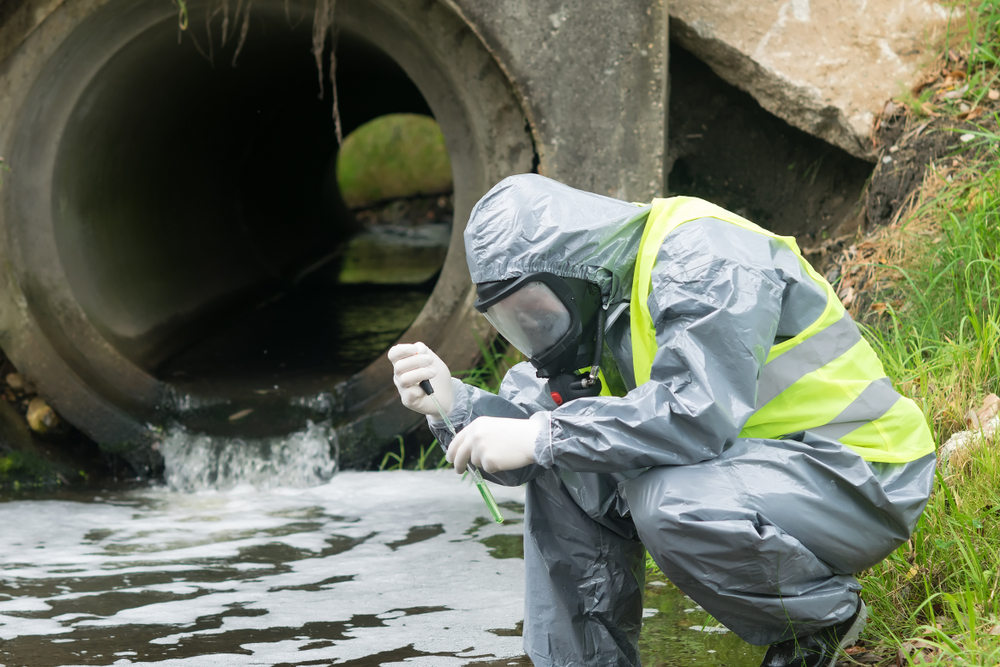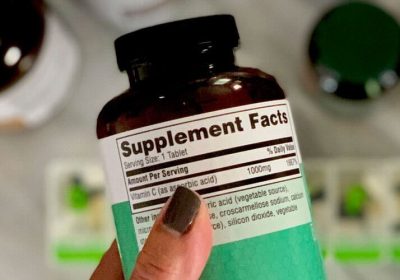Help us force the government to take urgent action given the extreme risk to our health posed by ‘forever chemicals.’ Action Alert!
Listen to the audio version of this article:
THE TOPLINE
- A watchdog group alleges that the EPA fraudulently claimed that pesticides were safe from contamination by ‘forever chemicals’—or PFAS, once again showing how the agency goes to bat for industry rather than public health.
- Water contamination is worse than we thought: EPA data show over 300 water systems in the US exceed the agency’s safety limits, which only exist for 6 out of over 10,000 PFAS chemicals.
- Following in the heels of Dupont, a company whistleblower tells how the 3M corporation knew for decades that its PFAS chemicals were dangerous for human health and were contaminating the general population, but kept it quiet for decades.
Per- and polyfluoroalkyl substances (PFAS), often termed “forever chemicals,” have emerged as a massive public health concern due to their persistence in the environment and the litany of adverse health effects with which they have been associated. Our own testing last year found supermarket kale from around the country to be contaminated with PFAS, raising serious questions about the safety of our food supply. Several new developments have emerged relating to PFAS contamination, underscoring the urgent need to ban PFAS chemicals to protect public health and the environment.
EPA Ignores PFAS in Pesticides?
Recent documents obtained from the US Environmental Protection Agency (EPA) have raised deep concerns about the agency’s handling of PFAS testing in pesticides. Allegations by the watchdog group Public Employees for Environmental Responsibility (PEER) and a former EPA research fellow suggest that the EPA provided false information to the public about the presence of PFAS in pesticides.
In May 2023, the EPA issued a press release claiming no PFAS were found in certain insecticide products, contradicting a published study by a former EPA researcher. PEER obtained EPA documents through a Freedom of Information Act request, which revealed that the agency had indeed found PFAS in the tested products.

PEER alleges that the EPA engaged in scientific and ethical misconduct, potentially under pressure from pesticide companies. The EPA’s internal documents showed that while two tests were publicly reported, four tests were conducted, one of which did find PFAS contamination.
This is yet more evidence of regulatory capture: the EPA is beholden to the very industry it is meant to regulate. Another salient example: when EPA officials went to bat for Bayer/Monsanto to keep glyphosate on the market.
PFAS Contamination in Public Drinking Water Systems
After more than a year of collecting test results for toxic PFAS, the EPA revealed that nearly 300 of America’s public drinking water systems exceeded newly-established annual limits for six these chemicals (there are some 14,000 PFAS chemicals). Some of these systems serve hundreds of thousands of people, raising significant public health concerns.

The EPA’s analysis found public systems in cities such as Fort Worth, Texas; Fresno, California; Pensacola, Florida; and Augusta, Georgia, among the hundreds where sample averages exceeded the new annual limits.
The situation is expected to worsen as more water utilities submit their test results. The EPA estimates that one in ten—over 6,000—systems may eventually need to take corrective action to rid their water of PFAS.
Almost 800 drinking water systems across the United States have recently measured PFAS at or above the newly established limits at least once. Water from these systems affects approximately 47 million people.
3M’s PFAS Cover-Up
The fact of PFAS contamination is made worse because it could have been avoided: decades ago, industry knew these chemicals were dangerous and spreading fast, but continued production anyway.
In 1997, Kris Hansen, a chemist at 3M Corporation, was assigned to test human blood for PFAS contamination. Hansen discovered that PFOS, a chemical used in various 3M products, was present in the blood of both 3M factory workers but also the general population. Despite rigorous testing and validation, Hansen’s findings indicated widespread contamination, challenging the company’s assurances of safety.
Hansen’s investigations revealed that 3M had conducted animal studies two decades earlier, showing PFOS to be toxic. These studies, which demonstrated severe effects such as liver damage and death in laboratory animals, were kept secret from many within the company. Historical internal documents showed that 3M executives had been warned by a toxicologist about the potential dangers of PFOS, yet production continued to increase.
Let the Science Speak!
Potential deception from regulators to protect pesticide companies, pervasive contamination of public water systems with PFAS, and 3M’s inexcusable cover-up all highlight a critical need for regulatory action. Protecting public health and ensuring environmental sustainability must take precedence over industrial convenience and profit.
We already know the problem of PFAS contamination is very serious. Monitoring studies of PFAS have demonstrated ubiquitous distribution in the environment, including humans, animals, drinking water, food crops, as well as remote areas of the Earth. PFAS accumulate in human tissue and organs, have the potential to travel over great distances, and have toxic effects on the environment and human health. In previous articles we’ve covered the many negative health effects associated with these chemicals.
We have enough evidence to know that these chemicals pose a real threat to our health. If we hope to stem the tide of contamination that threatens our health, the health of our children, and the health of the environment, we cannot play PFAS whack-a-mole; we must ban these chemicals as a class.
Action Alert! Write to Congress and the EPA, urging them to ban PFAS as a class to protect public health. Please send your message immediately.



